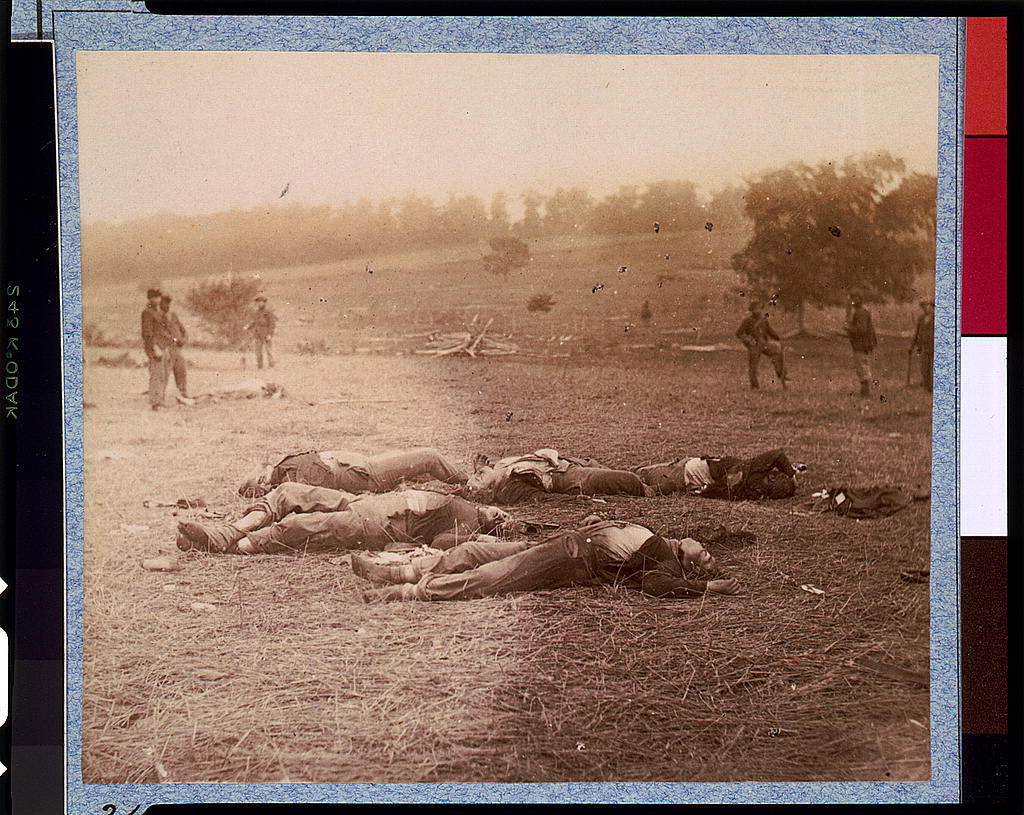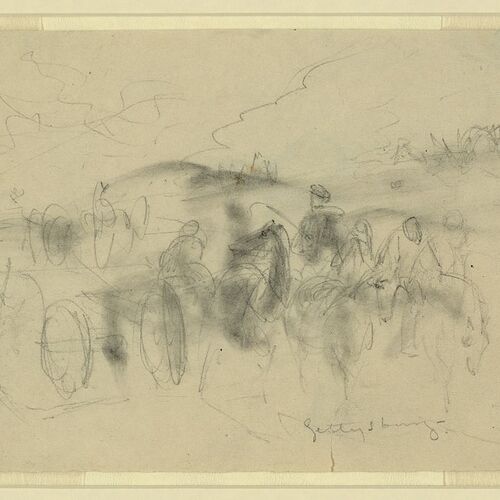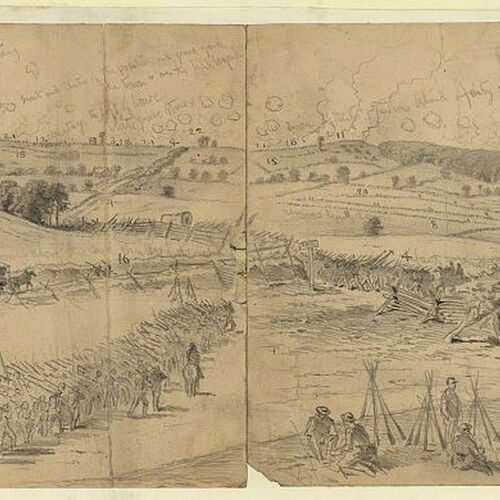Battle of Gettysburg
The Battle of Gettysburg is one of the most notable and monumental battles of the Civil War. Not only did it result in the withdrawal of General Robert E. Lee's army from the north, but provided massive momentum for the Union.
The battle began when the Union and Confederate armies clashed in the small town of Gettysburg, Pennsylvania. Lee's army had just won a decisisive batte in Chancellorsville, Virgnia and was steadily moving up north. The Confederate forces struck first, taking the majority of the Union position under General Daniel Sickles. The following day, July 3rd, General Robert E. Lee sent less than 15,000 men to attack the Union position at a place called Cemtery Ridge. The move by Lee was incredibly risky considering Lee's troops had to march across an open field, being vulnerabe to rifle and artillery fire. The journey across the field was over a mile long, and even one of Lee's generals, General Longstreet, was against the attack. Regardless, Lee sent his men across the field in an attack known as "Pickett's Charge". "Pickett's Charge" ended up being a massive failure as nearly two-thirds of the Confedrate attackers were lost. Shortly following the failure of Pickett's charge, Lee withdrew his army south.
The three days of fighting had caused massive casualties for both the Union and the Confederate armies. Union casualties were around 23,000 , while Confederate casualties reached around 28,000. Around 7,000 soldiers from both sides perished on the battlefield. While the Battle of Gettysburg had a large impact on both armies in terms of casualties, its outcome also greatly affected the rest of the Civil War. As a result of the loss, the Confederacy was unable to gain support from "Copperheads" who wanted peace in the Union. Lee himsef was so upset with the defeat that even he offered to resign. In the end, the Battle of Gettysburg dealt significant damage to the Confederate morale.




